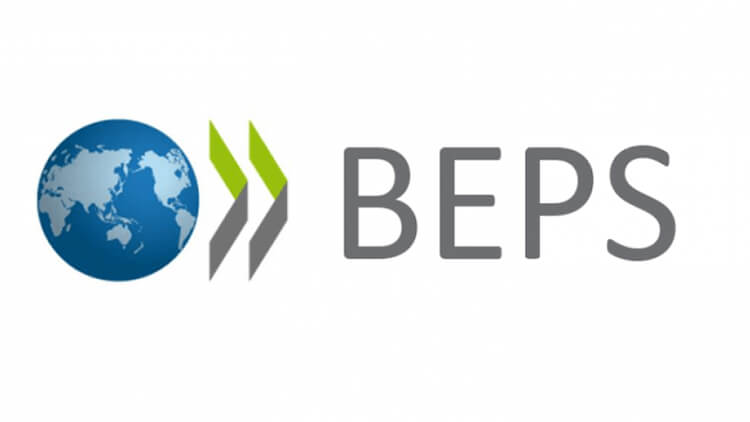Many jurisdictions have introduced and implemented economic substance rules. Some of them do this as an attempt to fight against tax avoidance from multiple corporations. Meanwhile, others just follow to prevent being listed on the EU blacklist.
If you incorporate in a jurisdiction that enacts economic substance (ES), your company will need to fulfill certain requirements and reporting obligations. This guide will give you an overall picture of this matter so you know what to deal with.
1. Introduction to Economic Substance Rules

Many multinational corporations are using strategies to avoid paying taxes. They take advantage of gaps and mismatches between tax policies in different countries to ship profits to low-tax or no-tax jurisdictions. These are known as Base Erosion and Profit Shipping (BEPS) practices
It was reported that these practices have resulted in an annual loss of 4 – 10% in the world tax revenue. The figure can go up to 100 – 240 billion dollars. Although most BEPS strategies are legal (according to the policy of each jurisdiction), they create unfair and unequal competition between multinational corporations and domestic enterprises.
Those are the main reasons OECD (Organisation for Economic Co-operation and Development) and G20 countries built up an inclusive framework on BEPS. Up to date, they have worked with over 139 jurisdictions to implement the BEPS Package.
The BEPS Package includes 15 actions that help governments deal with tax avoidance. By taking these actions, countries can make sure income is taxed where the value is created and not shifted to other places for tax evasion.
There are 4 minimum standards in the Package, which are:
- Action 5 (Harmful tax practices)
- Action 6 (Prevention of tax treaty abuse)
- Action 12 (Country-by-country reporting)
- Action 13 (Mutual Agreement Procedure)
Economic substance rules are one of the 3 key aspects of Action 5. It is regulated that certain kinds of income shall not be kept in no-tax jurisdictions unless there is a legitimate activity conducted in those places.
2. Reasons to Comply with Economic Substance Rules
The Council of European Union introduced the EU list of non-cooperative jurisdictions in 2017 (also known as the EU blacklist). It names non-EU jurisdictions that have harmful tax practices.
The list is updated twice a year. As of 22 February 2021, the list includes 12 jurisdictions:
- American Samoa
- Anguilla
- Dominica (new)
- Fiji
- Guam
- Palau
- Panama
- Samoa
- Trinidad and Tobago
- US Virgin Islands
- Vanuatu
- Seychelles
As a consequence, the non-cooperative jurisdictions will be subject to stricter monitoring and control measures. These places are also excluded from any EU funds or beneficial schemes, which will significantly hold back their economy.
To NOT be included in the EU blacklist, a jurisdiction must fulfill these 3 criteria:
- Tax transparency
- Fair taxation
- Anti-BEPS measures
Regarding Anti-BEPS measures, a country has to gradually implement at least the minimum standards (Action 5, 6, 12, and 13). Therefore, many governments have changed their legislation to add on economic substance rules concerning Action 5. This is an attempt to avoid being listed on the EU blacklist and the aftermath consequences.
Those jurisdictions that have yet to fulfill these criteria but commit to doing so will be added to the EU greylist. If they meet all the criteria, they will be removed from the list, otherwise, they will be put on the blacklist.
Here are some places that have enacted economic substances rules from 2019:
- Anguilla
- Bahamas
- Belize
- Bahrain
- Barbados
- Bermuda
- British Virgin Islands
- Cayman Islands
- Guernsey
- Isle of Man
- Jersey
- Turks and Caicos Islands
- UAE (subsequently amended on 10 August 2020)
- RAK
- St. Vincent & Grenadines (effective from 2021)
- Marshall Islands
- Mauritius
- Panama
As a result, if you incorporate your business in these jurisdictions, you will need to follow their ES regulations.
3. Scope of Economic Substance Rules

The economic substance rules set out certain requirements on certain kinds of relevant business activities, including:
- Banking
- Insurance
- Fund management
- Financing and leasing
- Distribution and service center
- Shipping
- Headquarters
- Holding business (pure equity holding), and
- Intellectual property.
However, not all business entities that conduct those activities need to satisfy the requirements. Each jurisdiction has its own set of conditions to identify what types of entities will be subject to the ES rules. Normally, tax residency is taken into account as an essential factor.
4. How to Comply with the Economic Substance Requirements
The requirements are quite the same for all relevant activities, except for holding business and high-risk intellectual property (IP) business. The requirements for the former are reduced while they are enhanced for the latter.
4.1. General ES Requirements
An in-scope business entity conducting relevant activities (other than equity holding and high-risky IP), are required to:
- Be managed and controlled inside the jurisdiction in question;
- Have adequate full-time employees with necessary qualifications, adequate amount of operating expenditures, and/or enough physical assets in the jurisdiction; and
- Conduct core income-generating activities (CIGAs) in the jurisdiction.
Each relevant activity has a different set of CIGAs.
For banking, the CIGAs include:
- Raising funds;
- Managing risk (credit, currency, and interest);
- Taking hedging positions;
- Providing loans, credit, or other financial services;
- Managing regulatory capital; and
- Preparing regulatory reports and returns.
For insurance, the CIGAs include:
- Predicting and calculating risk;
- Insuring or re-insuring against risk; and
- Providing clients with insurance services.
For fund management, the CIGAs include:
- Taking decisions on the holding and selling of investments;
- Calculating risks and reserves;
- Taking decisions on currency or interest fluctuations and hedging positions; and
- Preparing relevant regulatory or other reports for government authorities and investors.
For financing and leasing, the CIGAs include:
- Agreeing on funding terms;
- Identifying and acquiring assets to be leased (in the case of leasing);
- Setting the terms and duration of any financing or leasing;
- Monitoring and revising any agreements; and
- Managing any risks.
For distribution and service centers, the CIGAs include activities such as:
- Transporting and storing goods;
- Managing stocks and taking orders; and
- Providing consulting or other administrative services.
For shipping, the CIGAs include:
- Managing the crew (hiring, paying, and overseeing crewmembers);
- Hauling and maintaining ships;
- Overseeing and tracking deliveries;
- Determining what goods to order and when to deliver them; and
- Organizing and overseeing voyages.
For headquarters, the CIGAs include:
- Taking relevant management decisions;
- Incurring expenditures on behalf of group entities; and
- Coordinating group activities.
For general IP, the CIGAs include:
- Conducting research and development in case of patents and similar assets; and
- Branding, marketing, and distribution in the case of marketing intangibles
4.2. ES Requirements for Equity Holding Business
An entity that holds only equity and earns income from dividends and capital gains will need to satisfy the following criteria:
- Complying with the company act or other related act of the jurisdiction in question;
- Having adequate numbers of employees and premises to carry out the holding activity in the jurisdiction.
If an entity holds other types of assets (other than holding shares of equity), it will NOT be subject to the above conditions. However, it may be subject to other ES requirements if its income relates to other relevant activities.
4.3. ES Requirements for High-risk Intellectual Property Business
An IP activity is considered high-risk when:
- An entity gets an IP asset from a related party or through its funding for R&D activities that happen outside of the jurisdiction in question; and
- The IP asset is licensed or sold to related parties or the exploitation is conducted by related parties outside the jurisdiction.
An entity that runs a high-risk IP business is deemed compliant with the requirements if:
- There has been a high level of entity’s control over the development, exploitation, maintenance, enhancement, and protection of the IP asset; and
- There has been an adequate number of full-time employees with the necessary qualifications that permanently reside and perform their activities within the jurisdiction.
5. Reporting Requirement of Economic Substance Rules

To ensure compliance, relevant entities are required to report some information to the local authorities where they are incorporated:
- The conducted relevant activity and its core income-generating activities;
- The amount and types of gross income;
- The amount and types of expenses, assets, and premises used for business operation; and
- The number of full-time employees with sufficient qualifications.
For high-risk IP businesses, more evidence needs to be submitted, including:
- Detailed business plans which demonstrate the commercial rationale for holding the IP assets in the jurisdiction;
- Particular details of employees (level of experience, qualifications, type of contracts, and duration of employment); and
- Evidence that decisions are made within the jurisdiction.
As for the filing time and method, it depends on each jurisdiction’s regulations. In general, the filing period normally falls after the end of a fiscal year. Relevant entities will need to fill in prescribed forms and submit them to the local authorities via mail, e-portal, or any other regulated method.
6. Penalties for Non-Compliant Entities
Action 5 states that there should be action taken in case a relevant entity fails to satisfy the requirements and reporting. Each jurisdiction will have its sanction mechanism depending on the context. Normally, entities that fail to meet the reporting requirements will be subject to financial penalties. Continuous non-compliance will result in striking the entities off the register.
Furthermore, a jurisdiction is required to exchange all information of non-compliant entities with the jurisdictions where their immediate parent, ultimate parent, and ultimate beneficial owner reside.
7. Conclusion
Economic substance regulations have been adopted by numerous jurisdictions as part of the BEPS implementation. This is an attempt to NOT be considered as harmful tax jurisdictions under the governance of OECD and G20 countries.
Entities that conduct relevant activities will need to satisfy certain economic substance tests and other reporting requirements. In general, they have to prove that they conduct the activities as a legitimate business in the jurisdictions where they are incorporated. Non-compliance may eventually result in a business strike-off.
Disclaimer: While BBCIncorp strives to make the information on this website as timely and accurate as possible, the information itself is for reference purposes only. You should not substitute the information provided in this article for competent legal advice. Feel free to contact BBCIncorp’s customer services for advice on your specific cases.
Get helpful tips and info from our newsletter!
Stay in the know and be empowered with our strategic how-tos, resources, and guidelines.



